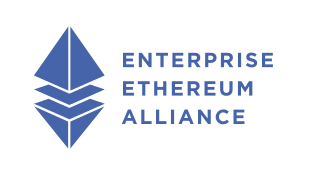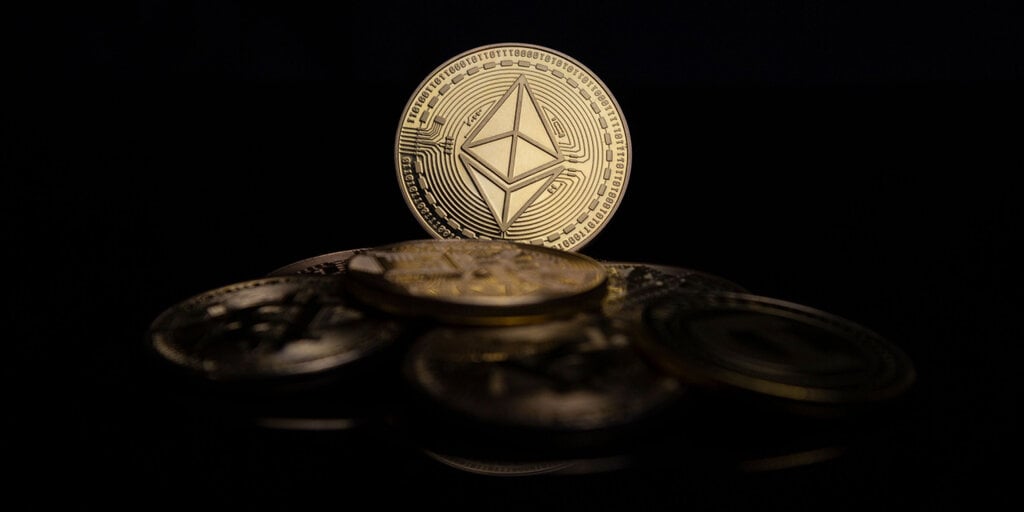EEA Releases DeFi Risk Assessment Guidelines v1

July 17, 2024
The EEA today published version 1 of its DeFi Risk Assessment Guidelines
This standard was created and will be maintained by the EEA’s DRAMA working group, which brings together leading representatives from the blockchain and financial industries to strengthen the DeFi ecosystem against a variety of risks. Banco Santander, Bitwave, C4, Certik, Coinchange, Consensys, Cryptio, Cube.AI, DeFi Safety, DTCC, Entersoft, EY, Hacken, Noves, OpenZeppelin, QualitaX, Quantstamp, Relm, and SAP have pooled their resources and knowledge to create this document.
It’s a bluffEEA DRAMA Co-Chair and Hacken CEO:
“The need for these guidelines is underscored by the ongoing regulatory uncertainty in the DeFi space. As existing frameworks lag behind the rapid growth of DeFi, this document serves as an essential industry-supported roadmap to navigate the complexities of DeFi with targeted risk management strategies.
From a security perspective, proper documentation is the cornerstone of a project’s smooth operation and security. This standard is the first comprehensive resource that founders and development teams can rely on while working on a product.”
EEA DeFi Risk Assessment Guidelines Overview
This document is intended primarily for DeFi protocol users and protocol investors, but is also relevant for protocol operators and protocol developers looking to minimize the risks of their protocols. It can also serve as a tool for standard setters and regulators.
The guidelines describe the risks that can affect DeFi protocols across a range of areas, including software, governance, liquidity and token economics, external market factors, and regulatory and standards compliance. The paper then discusses information that can be used to assess each level of risk and describes potential mitigation strategies that can be taken by the protocol itself, third parties providing professional services, or investors.
This work covers a wide range of areas.
DeFi is fundamentally based on several types of software. The guidelines address issues that affect each of these types of software, such as smart contracts, bridges, or oracles. They also address issues that can affect many types of software, such as the lack of standardization in DeFi, which can lead to interoperability issues and security risks when integrating and normalizing software or data from different vendors or sources.
Beyond software, many other factors are important. The token economics design and liquidity management inherent in each DeFi protocol, governance structure, compliance with regulations and relevant standards, and external market factors can all introduce risks to investors. From simple governance failures where malicious insiders steal funds that should be protected, to externalities that affect the performance of the protocol in the broader market or legal action by regulators, the guidelines provide information on how to assess the likelihood of problems occurring and provide guidance on how to minimize the associated risks.
Charles NevilleEEA Technology Program Director and EEA Defi Risk Assessment Guidelines Editor:
“Developing these guidelines has been and will continue to be a collaborative effort across EEA members, for the benefit of industry, the wider ecosystem and the participating institutions. The breadth of perspectives and depth of expertise that participants have brought to the group has been critical to this work. I am delighted to have been able to participate in this work and proud to have provided some assistance to the group, but most of all I would like to thank everyone whose efforts and contributions have made this possible.”
How can DeFi guidelines be useful?
For protocol founders and developers:
A guide to developing and managing a trustworthy protocol. It explains how to think about topics such as the documentation a protocol should provide, the processes and workflows required to ensure trust in the protocol, security, governance, token economics, liquidity, and external aspects that can be sources of risk.
For regulatory agencies and licensees
DeFi risk assessment guidelines can be used as a basis for regulators to assess and approve projects. For example, the guidelines have already been used as a basis for the DLT assessment methodology in a recent partnership between Abu Dhabi Global Markets and Hacken. Exchanges and other industry participants are expected to adopt these guidelines to ensure a robust and secure DeFi ecosystem.
For institutional investors
Institutional participants can use DeFi risk assessment guidelines to identify and mitigate potential risks, ensuring a safer and more reliable environment for decentralized finance operations. By following these guidelines, institutional investors can better navigate the complexities of DeFi, contributing to and benefiting from overall market stability and trust.
The Impact of DeFi Risk Guidelines on the Ecosystem
The rise of cryptocurrency exchange-traded funds (ETFs), including Ethereum ETFs, and the tokenization of assets highlight the need for a comprehensive risk assessment framework. With the floodgates opening for institutional investors to enter the cryptocurrency space, clear and standardized guidelines are essential. While the recent bull market has garnered attention, the influx of these key players makes this standard essential. This framework will help ensure a safe and secure environment for all participants in decentralized finance.
Michael RuellenDirector of Solutions Architecture at OpenZeppelin
“The DeFi industry is still rapidly evolving, with a constantly expanding array of new financial products and associated challenges. There is a unique mix of financial and technical risks that new entrants to the market must consider. The EEA DeFi Risk Assessment Guidance provides a comprehensive overview of financial and technical risks and will be essential reading for businesses and institutions looking to participate safely in the DeFi ecosystem.”
About the EEA
EEA is a global community of blockchain leaders, adopters, innovators, developers and enterprises. We accelerate business on Ethereum through professional and commercial support, advocacy and research, standards development and ecosystem trust services.
The EEA is recognized for developing and maintaining the EthTrust Security Levels specification, a leading industry standard for smart contract review. Developed by experts from multiple companies, this specification expands on earlier foundational work such as the SWC registry and the security work of the Solidity language project to improve smart contract security practices.
For more information about the EEA’s DeFi Risk Assessment Guidance or the working group, please contact Chaals Nevile, EEA’s Technical Programme Lead. (email protected).
For enquiries regarding EEA membership, please contact: (email protected) Or visit https://entethalliance.org/become-a-member/



